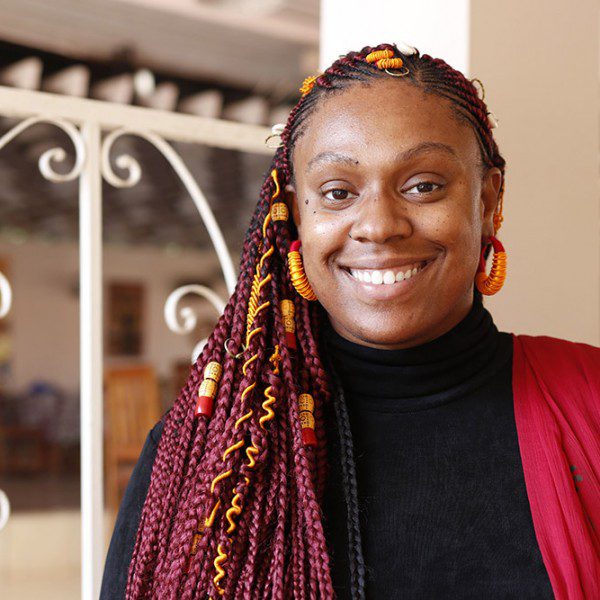

Assessment of the human rights situation in Africa I think that human rights in Africa have been commercialized. That it has somehow been made into a poster, into a video clip, into a child whose belly is swollen with hunger; all of this poverty porn that we see. I think that in terms of the human rights that we all want as human beings wherever we are; access to food security, upward mobility, economic empowerment, the ability to control the trajectory of your own life; these aren’t issues that are being discussed or actualized in ways that are concrete. I think that we need to, with human rights in Africa, move beyond the pictures, move beyond the stories, and the grant-funded initiatives that set up these pop-up operations to address issues and empower local people to take charge of their own initiatives as individuals from a grassroots level. I think that human rights in Africa have been commercialized. That it has somehow been made into a poster, into a video clip, into a child whose belly is swollen with hunger Independence of the commission I think that it’s important to realize that whenever you look at the legitimacy or validity of the work of an institution, you have to look at the money and how they are funded. So as long as they receive external funding from the European Union and outside partners, you can never trust the legitimacy and the authenticity of their work. I think that they have the best of intentions. But in order to deregulate what it is that they’re doing, I think that having them work in partnership with grassroots organizations that are based and doing the work from that level with local constituents wherever they have an office will keep them zeroed in and focused on the people. As long as they receive external funding from the European Union and outside partners, you can never trust the legitimacy and the authenticity of their work Again, they have the best of intentions. I just don’t feel as if local grassroots, human rights, and NGO organizations trust their ability to carry out their mandates. So we read the paperwork, we see their aspirations, but their ability to implement those aspirations is always going to be based on how they’re funded. We need to figure out how to build funding within the member state countries that is then in partnership with their initiatives. Who can contribute to protecting human rights in Africa? In my opinion, I feel like we should look to the diaspora. The Rhythm People Coalition, they are pan-Africanists. People that are focused on the preservation of life for African people. We are the ones in the diaspora that believe in pan-African unity because that’s all we have. We aren’t affiliated with a certain tribal group or community. We’re not only loyal to a certain member state. We are in this conversation because we are committed to the preservation of African life wherever it exists. I think we need to look to the diaspora to be a part of this conversation because they don’t have a hidden agenda. It comes from a different place. I think that also gives us the opportunity to discuss some of our human rights offenses. I think that we need to ensure that our conversations are the same about human rights. We aren’t affiliated with a certain tribal group or community. We’re not only loyal to a certain member state. We are in this conversation because we are committed to the preservation of African life wherever it exists The police brutality, the mass incarceration that black people face in the United States is very much a human rights violation, and that conversation needs to be connected to the human rights violations that are happening here in Africa. Until those conversations are connected, we won’t be effective on either side of the pond. I think that we need to look to the diaspora, include them into this conversation, and know that their support and inclusion comes from a place that is in connection to our value system and our livelihood. How does the commission exercise its mission to protect human rights? From my perspective, I feel like they’re facilitators. I hate to say it’s a “talk shop,” but in my opinion they have lofty aspirations but there’s no real teeth to what they do. But they do a really good job of facilitating dialogue and bringing together the players. In order to take advantage of spaces like this, when the players are brought together, they need to ensure that they do the networking that’s necessary to continue the discussion in a way that creates boots on the ground I think that in order to take advantage of spaces like this, when the players are brought together, they need to ensure that they do the networking that’s necessary to continue the discussion in a way that creates boots on the ground. What is the action plan? And how are grassroots communities going to be a part of that now that we can thank the commission for facilitating the dialogue and bringing together the players.
